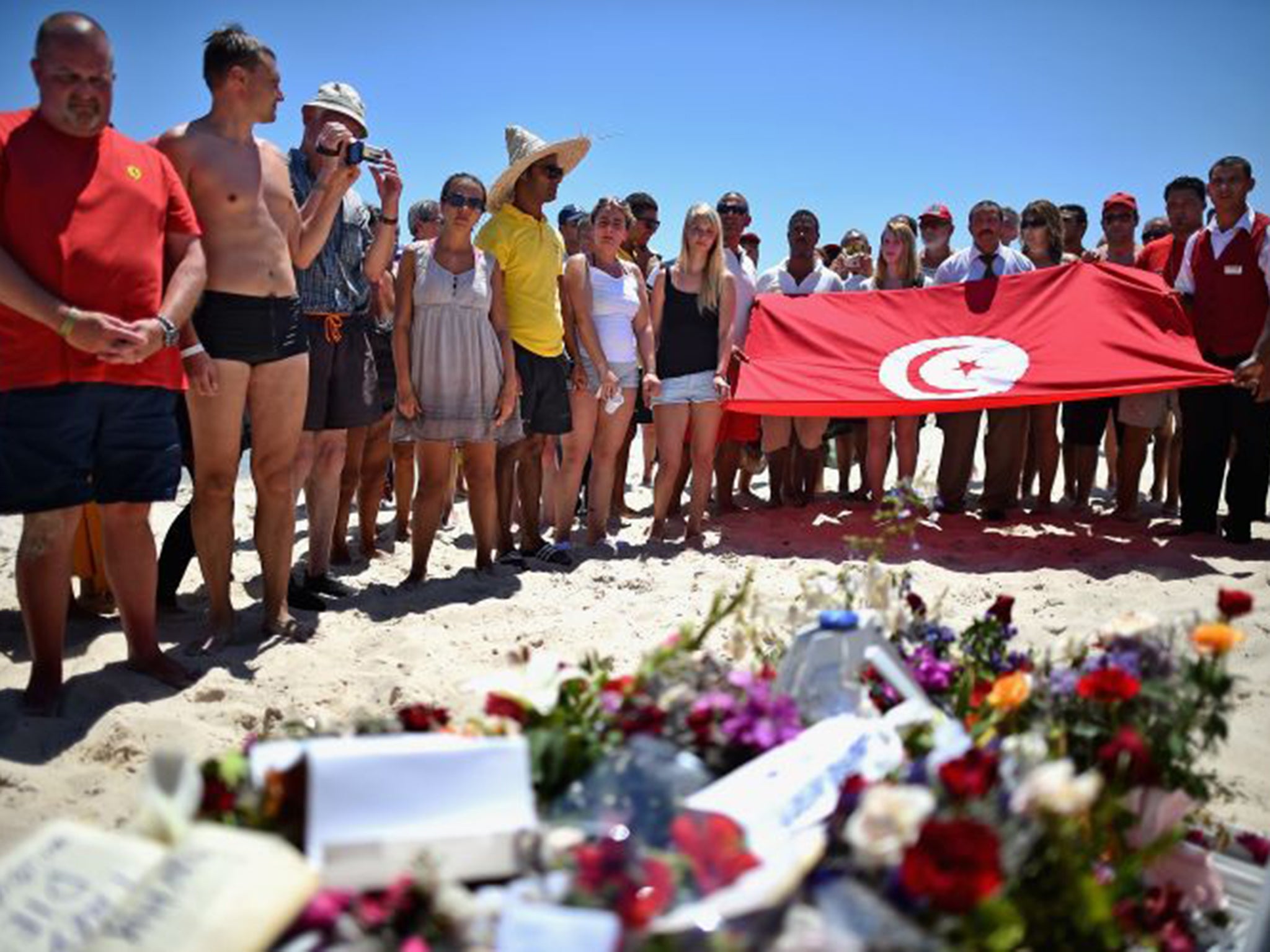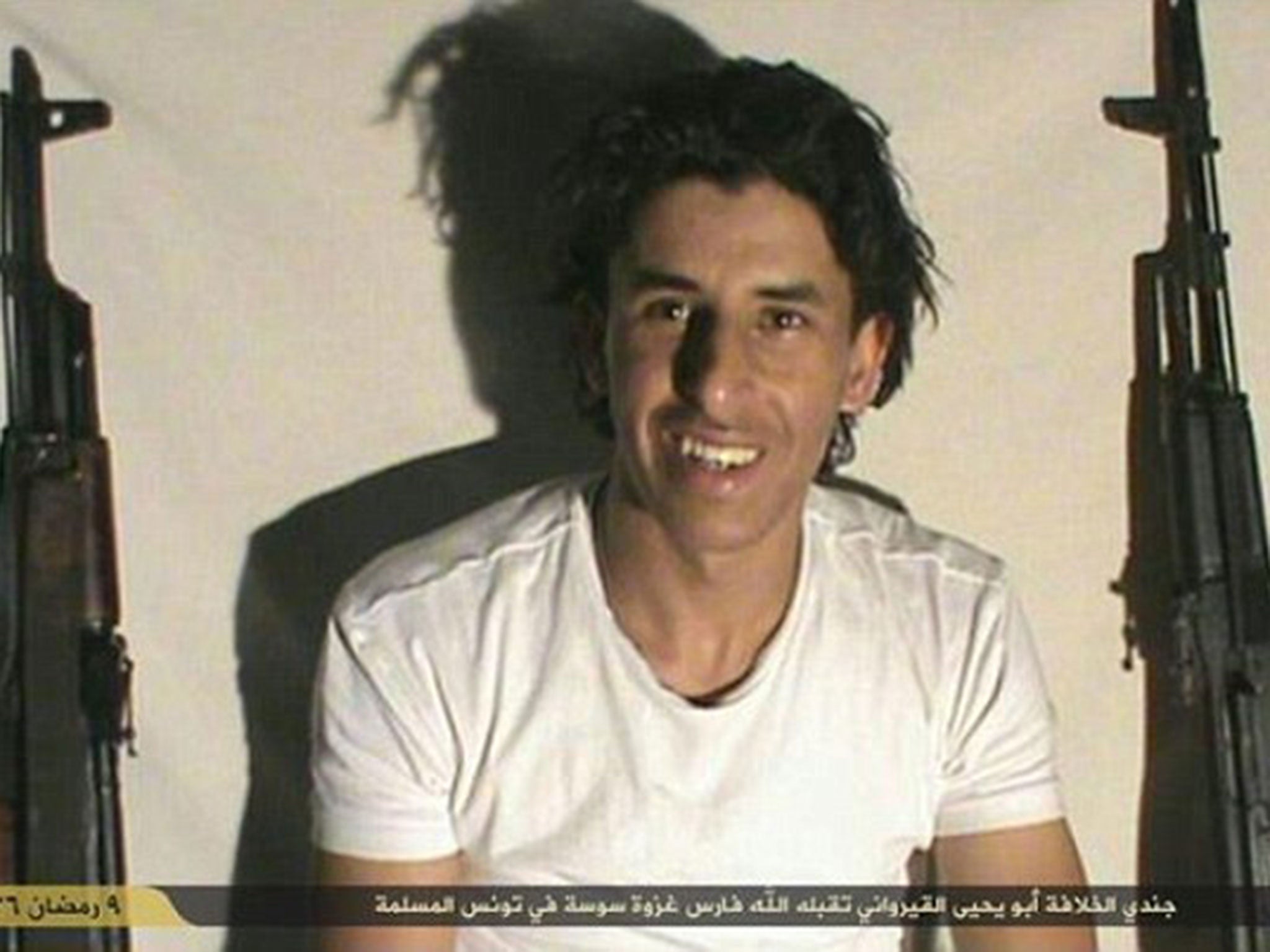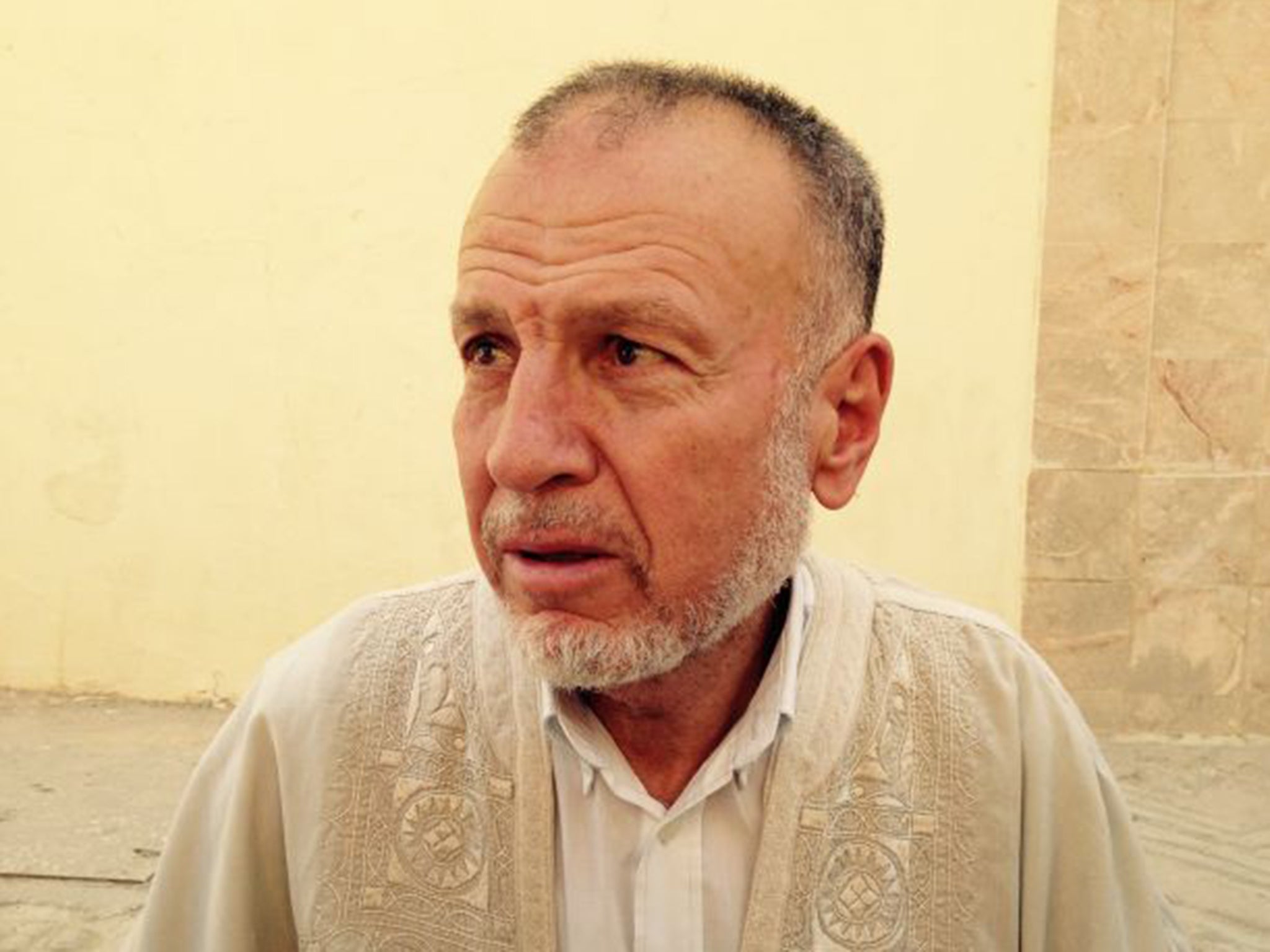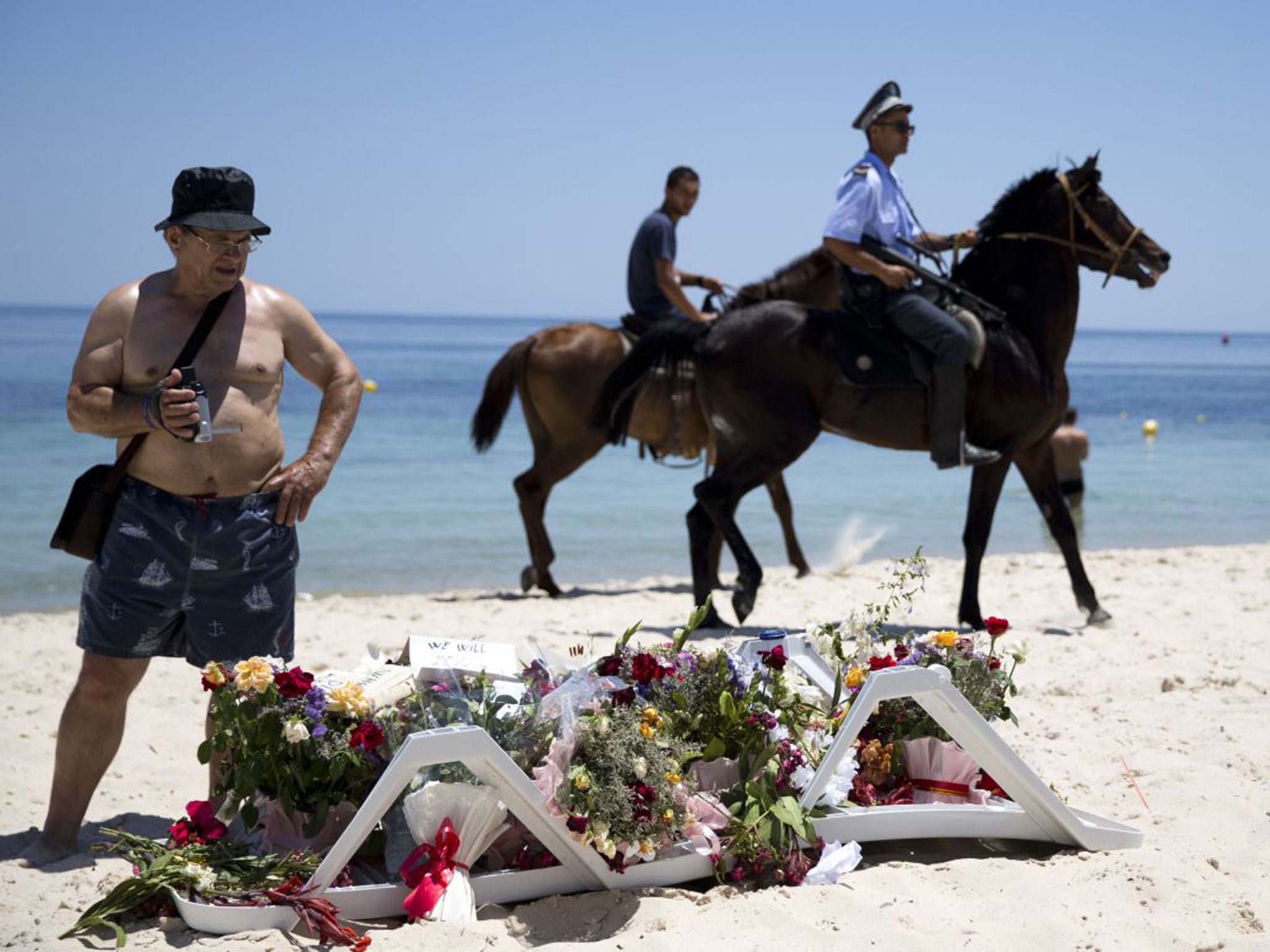Tunisia attack: Authorities 'sure' killer did not act alone as they search for accomplices
Exclusive: Men who shared a house with Seifeddine Rezgui remain at large

Your support helps us to tell the story
From reproductive rights to climate change to Big Tech, The Independent is on the ground when the story is developing. Whether it's investigating the financials of Elon Musk's pro-Trump PAC or producing our latest documentary, 'The A Word', which shines a light on the American women fighting for reproductive rights, we know how important it is to parse out the facts from the messaging.
At such a critical moment in US history, we need reporters on the ground. Your donation allows us to keep sending journalists to speak to both sides of the story.
The Independent is trusted by Americans across the entire political spectrum. And unlike many other quality news outlets, we choose not to lock Americans out of our reporting and analysis with paywalls. We believe quality journalism should be available to everyone, paid for by those who can afford it.
Your support makes all the difference.Seifeddine Rezgui – the student who carried out the murderous attack in the Tunisian resort of Sousse which left at least 30 Britons feared dead – disappeared along with six other young men he shared a house with a month before the slaughter on the beach, The Independent understands.
A number of the men, who had rented the property next to the Mosque of the Seven Virgins in the Islamic holy city of Kairouan, remained at large.
The group led secretive lives, deliberately avoiding contact with local people, according to neighbours, who also claimed that there were visits by a group of Salafists before the building was suddenly left empty. Authorities in Tunisia are “sure” Rezgui had help in Friday’s murderous rampage – though not direct – and are searching for his accomplices.
There were reports that the 23-year-old Rezgui had recently visited his home town of Gaafour, 50 miles south-west of Tunis. The identities and whereabouts of his housemates remain unknown. A Tunisian official involved in the inquiry said the authorities were trying to trace the men because they may have vital information about their dead housemate.
Isis, which had given Rezgui the name of “Abu Yahya al-Qayrawani” [from Kairouan], has claimed responsibility for the shooting of the 39 tourists in Sousse, along with the bombing of a mosque in Kuwait and a decapitation in France on the same day.
Rezgui, however, was not on any security watchlist in Tunisia. In London, the Home Secretary, Theresa May, presided on Sunday morning over a meeting of the emergency committee Cobra, saying authorities do not believe Rezgui was singling out British tourists, but was randomly killing anyone who looked European.
The government in Tunis has announced that it will put in an extra 1,000 armed police to protect tourist facilities and hotels after hundreds more were deployed at beach resorts in the aftermath of the massacre. The state news agency, TAP, reported that gunmen had raided homes for food in el Kef, around a 100 miles from the coast, before heading into hills bordering Algeria. It was unclear whether there was connection between this and the Sousse killings.

The Foreign Office in London stated that further attacks may follow in Tunisia. The warning was echoed by the Imam of the Great Mosque of Sidi-Uqba in Kairouan who maintained that it was “inconceivable” that Rezgui was not prepared for the murders by others. He added that the jihadist group Ansar al-Sharia, an al-Qaeda affiliate banned in Tunisia, was among the chief suspects although, he said, there may also be an Isis connection.
Imam Taib al-Gazi told The Independent that “damaging actions by weak governments” which followed the overthrow of the dictator Zine el Abidine Ben Ali four years ago had contributed to Kairouan being infected by extremism.
“From 2011 to last year we had all kinds of imams coming here, from Tunisia and abroad, from Saudi Arabia and Gulf States and other places to spread this kind of thought. This has now been stopped by the new government, but there were plenty of opportunities for this man Rezgui to be indoctrinated,” said Imam Taib.
However, the imam said he was against an emergency measure announced by the Tunisian Prime Minister, Habib Essid, to shut down 80 mosques accused of espousing violence. “It would be better to change the imams there. None of these mosques is in Kairouan. We had trouble like that in two mosques last year and we changed the imams”, he said.

The imam said he acknowledged that extremists wanted to use houses of worship to spread their “bad message”. Ansar al-Sharia was allowed by the government of the time to hold a meeting at the Great Mosque two years ago. “It was a big mistake; we were against it – we did not give our permission for this,” he stressed.
“Also the people of Kairouan were against it. They had to put the police in front of the mosque to protect Ansar from the angry people of this city. The following year Ansar tried to use the mosque again, this time they were stopped from even entering Kairouan.
“What happened shows that Kairouan is not place for terrorists. Because this killer lived here for a while, this city is now getting a bad name. But he wasn’t even born here.”
Many others in Kairouan, 60 miles away from Sousse, also felt that the presence of Rezgui had unfairly tarnished the image of the city.
The residents of Sidi Belkacem district complained that they faced being traduced because the murderer had lived among them.
“But it was only for about eight months and we hardly ever saw them during that time. They went to that mosque but never mixed,” 22-year-old Imene Mohammed wanted to explain. “Whenever they were going to and from the house they would just look at the ground. This was not just with women – they would not look at the men either.”
Youssef Echarfi nodded his head: “They would do anything not to talk to you; they would not even talk to you at the mosque. They were not rude but would pretend to be on the phone so as not to have a conversation.
“Towards the end they just kept themselves shut up in the house. Now I wonder what was going on in there. Then they had visitors, men with big beards and again I wonder what was going on.”

It is not, of course, known whether Rezgui’s journey to becoming a killer began at his birthplace. His Facebook postings had begun to change from expressing his fondness of techno music and breakdancing to jihad and death. His last entry on New Year’s Day 2015, when he was living in the Belkacem district, read: “May God take me out of this unjust world and perish its people and make them suffer. They just remember you when you die.”
Rezgui’s murderous rampage has had a profound impact on Tunisia’s main source of income and employment, tourism. Three thousand foreign visitors left in 24 hours after the killings.
The government will be holding meetings with foreign ambassadors to describe the new security measures being taken to protect their nationals.
“German, French and British officials have informed us that they will not prevent tourists from coming to Tunisia, but they want to participate in the investigation and to see clear security decisions”, the Tourism Minister, Salma Loumi, announced.
Join our commenting forum
Join thought-provoking conversations, follow other Independent readers and see their replies
Comments